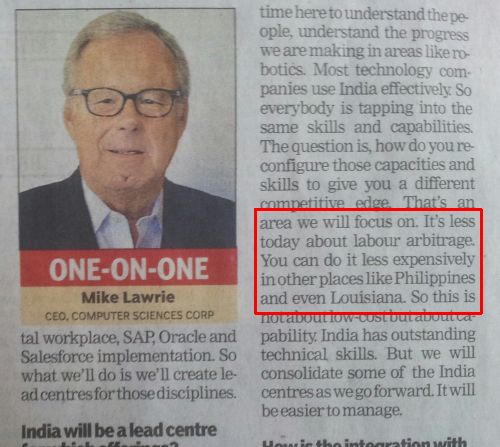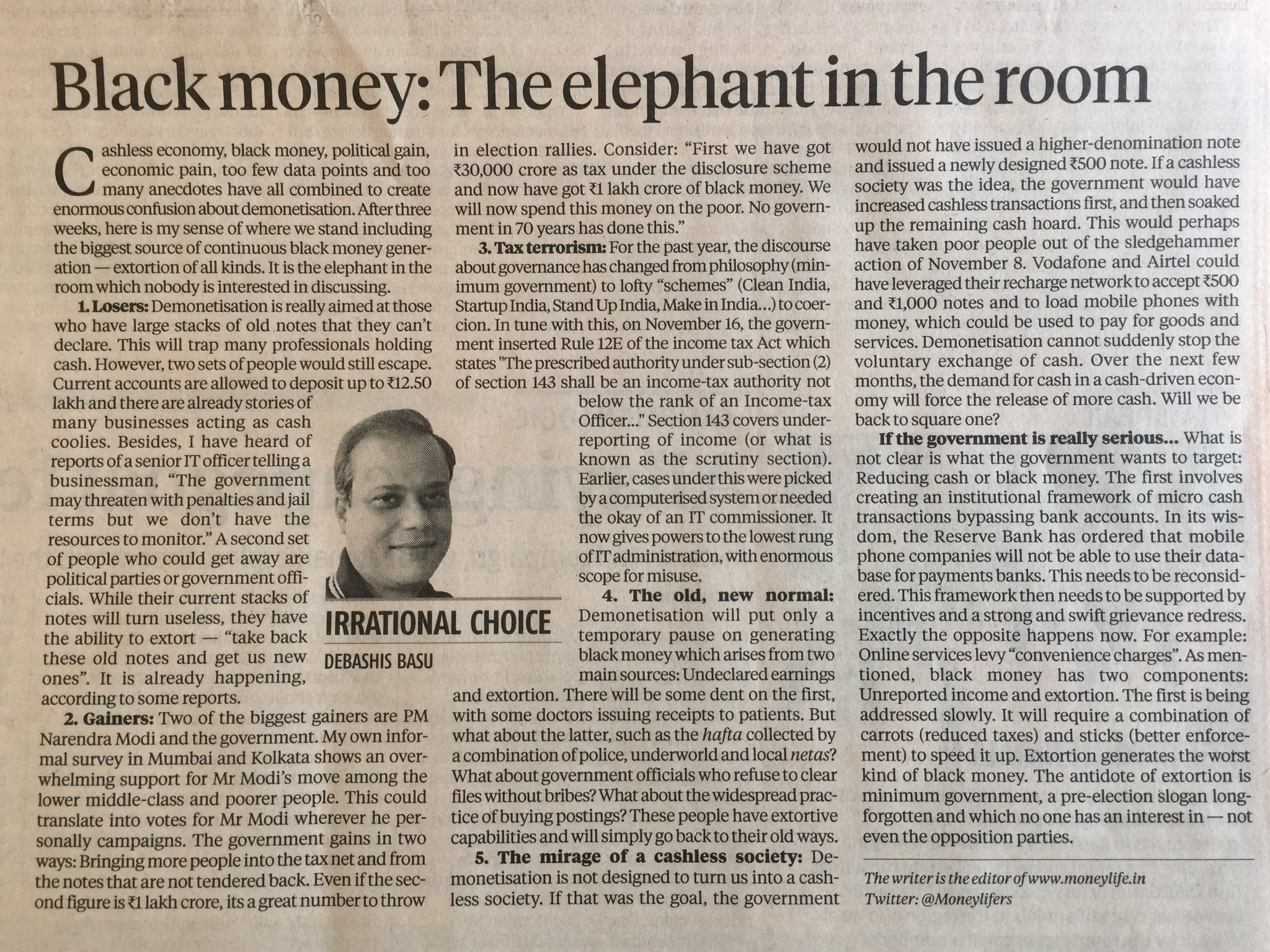In his radio address to the country yesterday, Modi’s speech was full of Us (Have Nots) Vs Them (Haves) rhetoric:
Some excerpts:
But vices are so widespread and deep-rooted that even today there are people whose vicious habits refuse to die. Even now, some people think that they can re-introduce into the system, money from corruption, black money, unaccounted wealth and Benami money (money in unknown person’s name), using some route or the other. They seek illegal means to save their ill-gotten wealth.
The saddest part is that, for this too, they have chosen to misuse the poor, the underprivileged people. By misguiding the poor, enticing them through the vices of avarice and temptation, wrongfully pumping money into their bank accounts, or getting them to undertake some wrong activities, some people are trying to save their black money.
I want to tell such people today – whether you reform or not is up to you, whether you respect and follow the law or do otherwise is again up to you; of course, the law will take its own course to decide on the requisite action; but, for God’s sake, please do not play with the lives of poor people. Do not do anything that may bring the names of the poor on record for wrong reasons and land my dear poor people into trouble during the investigation later on account of your foul deeds.
And the law regarding Benami property that has been enacted and is being implemented is very stringent and it is going to be extremely tough on wrong doers. The government does not wish that our countrymen should face undue hardships.
On the basis of reports received from about 45-50 cities, I gathered that demonetisation had encouraged people there to pay their arrears accumulated due to non-payment of dues earlier; many people were in the habit of not making tax payments such as water tax, electricity bills, etc., they just did not pay.
Now all of us know very well that the poor people always like to clear their dues 2-3 days in advance. It is the well-off people, who do not pay their taxes and bills as they have higher connections and know that nobody is going to ask or do anything against them
Err…do we now have a new Hugo Chavez in town?
His socialist rhetoric makes me think that Long Term Cap Gains Taxes are on its way for Equity Markets.

